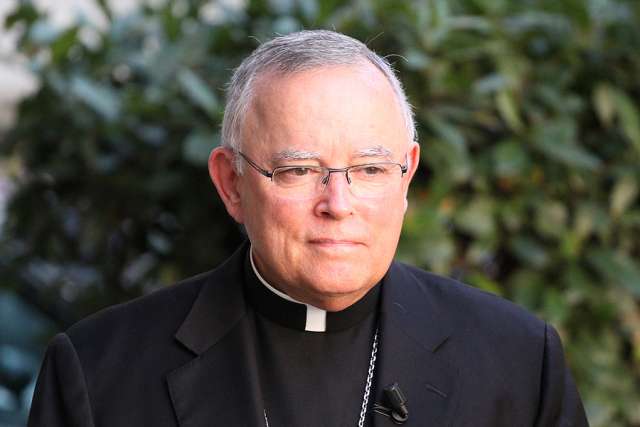Chaput on the 25th Anniversary of Veritatis Splendor

Catholic News Agency had the opportunity to interview the Archbishop on the importance of Veritatis Splendor:
You’ve written that “the wisdom of Veritatis splendor is more urgently needed than ever.” Why? What problems have compounded since its release?
We live in a liquid time. That’s how the late philosopher Zygmunt Bauman described it: “liquid modernity.” Changes in technology, science and culture now happen very rapidly. It’s hard to find firm ground where we can stand and make sense of things. The resulting confusion can undermine our beliefs about the meaning of our lives. It becomes easy to think that the basic character of the world, the nature of good and evil, the moral standards for human behavior, have somehow changed and become more ambiguous, more dependent on circumstances. But they haven’t.
Permanent truths about right and wrong govern our lives. The genius of Veritatis splendor is how persuasively it reminds us of that fact, and calls us back to what Augustine called the “tranquility of order” in our souls.
I’ve been thinking a lot about the Reformation lately because we mark its 500th anniversary next month. It’s striking how closely the moods of then and now resemble each other – not in the specific details, but the general spirit of unrest and anticipation. Something’s coming. People can feel it, some sort of “second Reformation” or deep realignment in the way we engage each other and the world. That’s a great opportunity for Christian hope and witness. Of course it also comes with some perils. This makes a strong grasp of truth all the more vital.
Nearly 25 years later, how has Veritatis splendor been received in the Church in the United States?
People have a natural thirst for solid ground and clarity. Among faithful young Catholic scholars, it’s been received very well. Actually, like water in a desert.
Has it had its intended effect? What fruit has it borne in the Church and in the world?
There’s been a long civil war in the Church over the meaning of Vatican II. It’s still with us. It probably won’t end until my generation – the boomers – moves on, because persons who actually lived through the council years tend to have a deep investment in their particular version of what the council did and meant.
Veritatis splendor is very much a fruit of the [Second Vatican] Council. Its immense value is its reaffirmation of the existence of permanent truths, its rejection of moral ambiguity, and the beauty of its presentation of truth as a source of Christian freedom and joy. So I don’t have any doubt that it will be remembered as one of the great papal contributions to Catholic life and thought.
Pope Francis has often warned against “moral pharisaism.” Is he criticizing the kind of moralistic legalism that John Paul II addressed in Veritatis splendor and elsewhere?
You can read the rest of the transcript on the CNS website.



